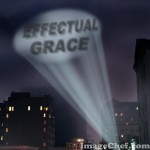 “… whatever pressures we feel as contemporary Christians in the West, they pale by comparison with the obstacles that confronted the new converts to whom Hebrews was written. If indeed they were Jewish converts, each one became persona non grata in both family and community — big-time non grata — disinherited, ostracized, and alienated from the tight network that provided personal, educational, emotional, and financial support. They had joined the notorious “third race of men” that followed a claimant Messiah who had been roundly rejected, humiliated, crucified, and accursed. Now they too experienced reproach and the loss of family, property, and security (Heb. 10:32-4; 13:13). From now on they had to camp outside.
“… whatever pressures we feel as contemporary Christians in the West, they pale by comparison with the obstacles that confronted the new converts to whom Hebrews was written. If indeed they were Jewish converts, each one became persona non grata in both family and community — big-time non grata — disinherited, ostracized, and alienated from the tight network that provided personal, educational, emotional, and financial support. They had joined the notorious “third race of men” that followed a claimant Messiah who had been roundly rejected, humiliated, crucified, and accursed. Now they too experienced reproach and the loss of family, property, and security (Heb. 10:32-4; 13:13). From now on they had to camp outside.
Would they last? Will I last? Where should I look (or point others to look)? The answer to this question, as indeed to virtually every question in Hebrews, is this: “LOOK TO JESUS.” For “he is also able to save to the uttermost those who come to God through him” (Heb. 7:25).
The phrase “to the uttermost” expresses the multi-dimensional saving ability of Christ. His adequacy is not limited by the breadth of my frailty, the depth of my sinfulness, or the ongoing nature of my need. In each of these dimensions Christ is “fitting for us” (v. 26). That is to say, Jesus is exactly the kind of Savior we need. That is why the words “he is able” are woven into the very warp and woof of His eternal high priestly garments. He intercedes for us “in the power of an indestructible life” (7:16). No wonder the refrain of the author is: “Look to Jesus” (3:1; 12:2)!
So what implications follow from the unique and everlasting priesthood of our Lord Jesus? Many, but for the moment notice these two implications: First, my security as a Christian does not reside in the strength of my faith but in the indestructibility of my Savior. How much I need to learn again and again the basic principle that I must walk in Christ in the same way I received Christ (Col. 2:6), not depending on anything that resides in me but on everything that is mine in Him. The reformed fathers and masters of spiritual counsel used to say wisely that the weakest faith gets the same strong Christ as does the strongest faith.
Continue reading →
 Christian – Do you “thank” God for your conversion? You do because you know that God was entirely responsible for it. You thank God because you do not attribute your repenting and believing to your own wisdom, or sound judgment, or good sense. Or do you?
Christian – Do you “thank” God for your conversion? You do because you know that God was entirely responsible for it. You thank God because you do not attribute your repenting and believing to your own wisdom, or sound judgment, or good sense. Or do you?
 “… whatever pressures we feel as contemporary Christians in the West, they pale by comparison with the obstacles that confronted the new converts to whom Hebrews was written. If indeed they were Jewish converts, each one became persona non grata in both family and community — big-time non grata — disinherited, ostracized, and alienated from the tight network that provided personal, educational, emotional, and financial support. They had joined the notorious “third race of men” that followed a claimant Messiah who had been roundly rejected, humiliated, crucified, and accursed. Now they too experienced reproach and the loss of family, property, and security (Heb. 10:32-4; 13:13). From now on they had to camp outside.
“… whatever pressures we feel as contemporary Christians in the West, they pale by comparison with the obstacles that confronted the new converts to whom Hebrews was written. If indeed they were Jewish converts, each one became persona non grata in both family and community — big-time non grata — disinherited, ostracized, and alienated from the tight network that provided personal, educational, emotional, and financial support. They had joined the notorious “third race of men” that followed a claimant Messiah who had been roundly rejected, humiliated, crucified, and accursed. Now they too experienced reproach and the loss of family, property, and security (Heb. 10:32-4; 13:13). From now on they had to camp outside. Justin Taylor has written a short but helpful article, putting together the thoughts of other scholars on this theme:
Justin Taylor has written a short but helpful article, putting together the thoughts of other scholars on this theme: